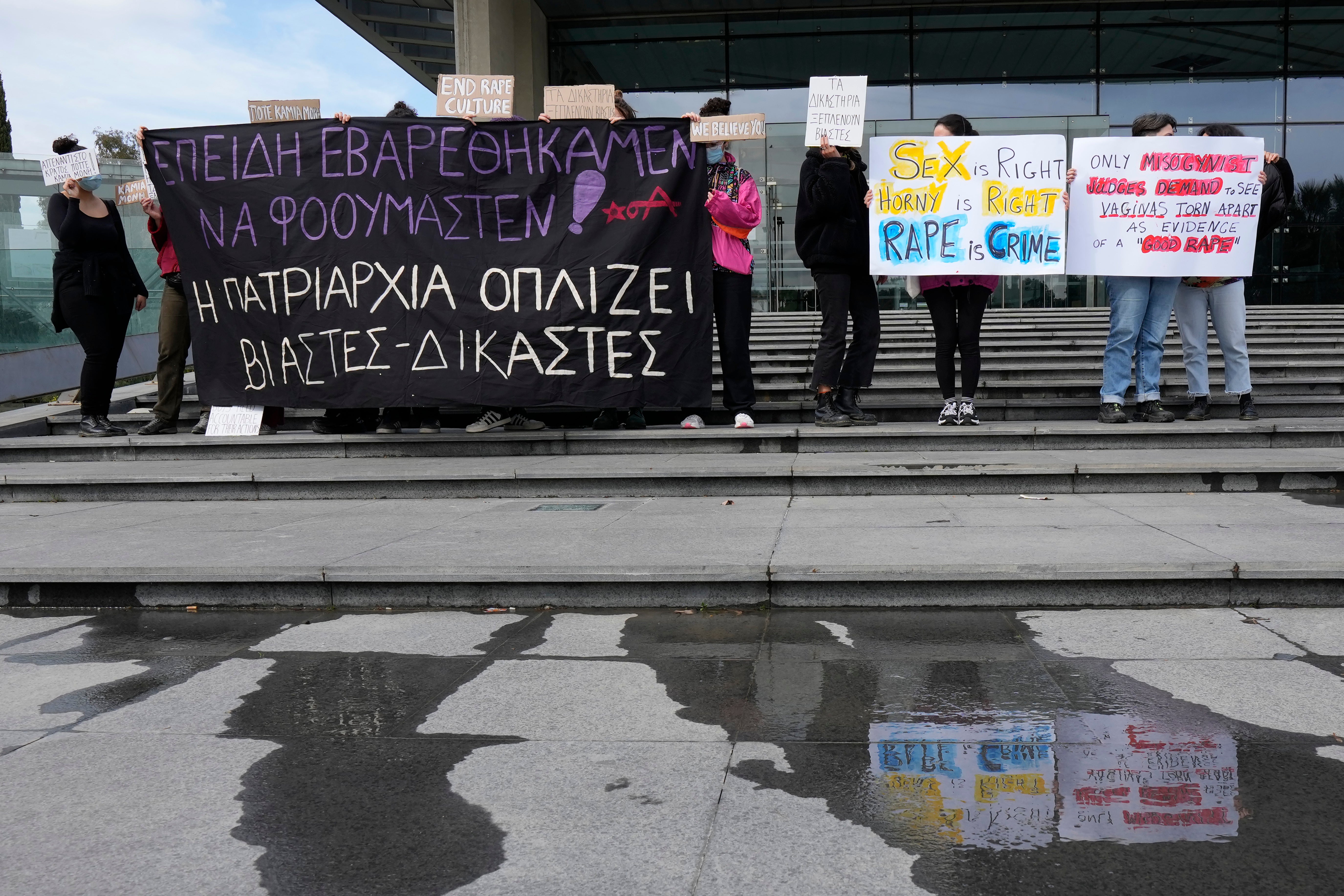Cyprus overturns UK woman's conviction for making up rape
The Supreme Court in Cyprus has overturned a British woman’s conviction for making up claims she was gang-raped by as many as a dozen Israelis

Your support helps us to tell the story
From reproductive rights to climate change to Big Tech, The Independent is on the ground when the story is developing. Whether it's investigating the financials of Elon Musk's pro-Trump PAC or producing our latest documentary, 'The A Word', which shines a light on the American women fighting for reproductive rights, we know how important it is to parse out the facts from the messaging.
At such a critical moment in US history, we need reporters on the ground. Your donation allows us to keep sending journalists to speak to both sides of the story.
The Independent is trusted by Americans across the entire political spectrum. And unlike many other quality news outlets, we choose not to lock Americans out of our reporting and analysis with paywalls. We believe quality journalism should be available to everyone, paid for by those who can afford it.
Your support makes all the difference.The Supreme Court in Cyprus overturned the conviction of a British woman given a four-month suspended sentence for making up claims that she was gang raped by as many as a dozen Israelis during a vacation in Cyprus in 2019, defense lawyers said Monday.
Michael Polak, who was among a team of lawyers representing the woman, called the decision a “watershed moment” for the woman and others “around the world who find themselves in similar positions.”
Polak said the Supreme Court agreed with the defense that the British woman didn’t receive a fair trial and that important fair trial provisions were “totally disregarded in this case.”
He said the “young, vulnerable woman was not only mistreated” when she reported the rape to police but was also put through a trial that was “manifestly unfair” as the Supreme Court found.
Polak said the defense team fought the case with “one hand tied behind our back" and that “a decision as to guilt had been made before the proceedings had even started."
Polak told the Associated press that among the flaws the Supreme Court pointed out in the investigation and subsequent trial was that the woman didn't have a lawyer present when questioned by the police. Also, both investigators and the trial judge “fundamentally misunderstood” the evidence regarding the timing of the rape, which prejudiced proceedings against the woman.
Lawyer Nicoletta Charalambidou called the ruling “a very important day for women's rights" in Cyprus and said the defense team would try to get to the bottom of why authorities failed to “effectively investigate" the rape claims, as is the woman's right under the Cypriot Constitution. She urged for a probe by a separate team of investigators.
In a statement, the woman's family expressed relief that Cypriot authorities “recognized the flaws in their legal process.”
“Whilst this decision doesn't excuse the way she was treated by the police or the judge or those in authority, it does bring with it the hope that my daughter's suffering will at least bring positive changes in the way victims of crime are treated," the statement said.
Defense lawyers had said that the woman — whose identity hasn’t been formally released and was 19 at the time of her trial — was suffering from a stress disorder and had been pressured into making an “unreliable” retraction.
They said the “discourteous” lower court judge Michalis Papathanasiou didn’t give defense lawyers the chance to put forward evidence supporting the woman’s claims.
Judge Papathanasiou said in his original ruling that the woman defendant didn’t tell the truth and tried to deceive the court with “evasive” statements in her testimony. He said the woman had admitted to investigators that she made up the claims because she was “ashamed” after finding out that some of the Israelis had videoed her having consensual sex with her Israeli boyfriend on their cellphones.
A group of activists who gathered at the steps of the Supreme Court and held up banners reading “I Believe Her" and “The Patriarchy Arms Rapists, Judges" cheered and clapped as the ruling was announced.
Prior to the Supreme Court ruling, the British government had said it had raised “numerous concerns” with Cypriot authorities about the judicial process in the case and the woman’s right to a fair trial.